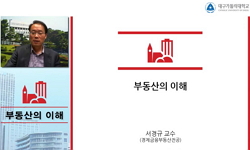본 논문에서는 중국의 부동산 소유권 제도 전반과 외국인의 부동산 취득과 관련한 중국의 관련 법제를 살펴보고, 이를 바탕으로 국내의 관련 논의에 대한 시사점을 도출하고 자 하였다. 먼...
http://chineseinput.net/에서 pinyin(병음)방식으로 중국어를 변환할 수 있습니다.
변환된 중국어를 복사하여 사용하시면 됩니다.
- 中文 을 입력하시려면 zhongwen을 입력하시고 space를누르시면됩니다.
- 北京 을 입력하시려면 beijing을 입력하시고 space를 누르시면 됩니다.
https://www.riss.kr/link?id=A109218711
-
저자
배덕현 (사단법인 한국인문사회총연합회)
- 발행기관
- 학술지명
- 권호사항
-
발행연도
2024
-
작성언어
Korean
-
주제어
중국 ; 부동산 ; 외국인 ; 역외 기관 ; 역외 개인 ; 상호주의 ; China ; Real estate ; Foreign Investor ; Foreign entity ; Foreign individual ; Reciprocity
-
KDC
912
-
등재정보
KCI등재
-
자료형태
학술저널
-
수록면
83-119(37쪽)
- 제공처
-
0
상세조회 -
0
다운로드
부가정보
국문 초록 (Abstract)
본 논문에서는 중국의 부동산 소유권 제도 전반과 외국인의 부동산 취득과 관련한 중국의 관련 법제를 살펴보고, 이를 바탕으로 국내의 관련 논의에 대한 시사점을 도출하고 자 하였다. 먼저 중국의 현행법상 토지소유권은 국가와 집체만이 소유할 수 있기 때문에 외국인은 토지소유권을 취득할 수 없으며 오로지 토지에 대한 사용권만을 확보할 수 있다. 하지만 이는 외국인 등에 대해서만 그런 것이 아니라 내국인에게도 공통되는 것이라 는 점에서 외국인에 대한 규제라고는 할 수 없다. 다음으로 건물의 경우에는 구매에 있어 일정한 제한사항이 있기는 하지만, 외국인의 구매 자체가 금지되지는 않고 있다. 이런 점에서 국내 일각에서 제기되고 있는 중국 부동산 법제에 대한 오해는 바로잡힐 필요가 있다고 생각된다. 한편 최근 들어 외국인의 부동산 취득이 빠르게 늘어나면서 국내에서도 이와 관련한 활발한 논의가 전개되고 있는데, 규제가 필요하다는 의견에서부터 국제법상으로 인정되 고 있는 상호주의 원칙상 규제가 어렵다는 의견까지 다양한 의견들이 제시되고 있다. 한중 양국은 가용토지면적이 인구에 비해 절대적으로 부족하고 부동산이 국민 생활에서 차지하는 중요성도 매우 크다는 공통점이 있다. 이런 점에서 중국의 사례를 참고하여 실거주 목적의 외국인에게만 1주택 구매를 허용하는 방향으로 제도 정비를 고민해 볼 필요가 있다고 생각한다.
다국어 초록 (Multilingual Abstract)
The goal of this study is to analyze the real estate ownership system and legal framework for real estate foreign investors in the People's Republic of China (PRC) and to draw insights relevant to ongoing discussions in Korea. According to China's cur...
The goal of this study is to analyze the real estate ownership system and legal framework for real estate foreign investors in the People's Republic of China (PRC) and to draw insights relevant to ongoing discussions in Korea. According to China's current legal framework, land ownership is vested exclusively in the State and Collective Organizations. As a result, foreign entities and individuals are not permitted to acquire land ownership but may obtain land use rights. It is important to note that these restrictions apply equally to domestic citizens and organizations, indicating that the limitations are not specifically directed towards foreign investors. In the case of houses and buildings, because of the existence of certain restrictions, foreign entities and individuals are not barred from purchasing these properties. This is important when addressing or correcting any misunderstandings about the PRC's real estate system that may exist in Korea. In recent years, a rapid increase in real estate acquisitions by foreigners has sparked active debate in Korea, encompassing a wide range of perspectives. Some argue that restrictions should be imposed on the purchase of real estate by foreign entities and individuals, while others contend that such measures could violate the principle of reciprocity recognized in international law. Both Korea and China face the challenge of limited available land for their large populations, making real estate a critical aspect in the lives of individuals. It is essential to consider legal restrictions on the purchase of domestic real estate by foreign individuals and entities in Korea. Given this shared concern, China's policy, which permits foreigners to purchase only one property for the purpose of residence, could serve as a valuable reference for formulating similar measures in Korea.
목차 (Table of Contents)
- Ⅰ. 서론
- Ⅱ. 외국인과 부동산 및 부동산 물권
- Ⅲ. 외국인의 부동산 취득 관련 법제
- Ⅳ. 결론 및 시사점
- 참고문헌
- Ⅰ. 서론
- Ⅱ. 외국인과 부동산 및 부동산 물권
- Ⅲ. 외국인의 부동산 취득 관련 법제
- Ⅳ. 결론 및 시사점
- 참고문헌
- 국문초록
- Abstract
동일학술지(권/호) 다른 논문
-
미·중 기술경쟁 시대 중국 첨단기술 기업의 전략적 전환에 관한 연구 – ser-M 모델에 기반한 화웨이 전략 분석 –
- 중국지역학회
- 조수영
- 2024
- KCI등재
-
중국 베이징시의 문화도시 조성을 위한 문화자원 – 관광 중심형 사례를 중심으로 –
- 중국지역학회
- 오혜정
- 2024
- KCI등재
-
- 중국지역학회
- 朱思孫宇
- 2024
- KCI등재
-
- 중국지역학회
- Bao, Tong
- 2024
- KCI등재





 eArticle
eArticle






